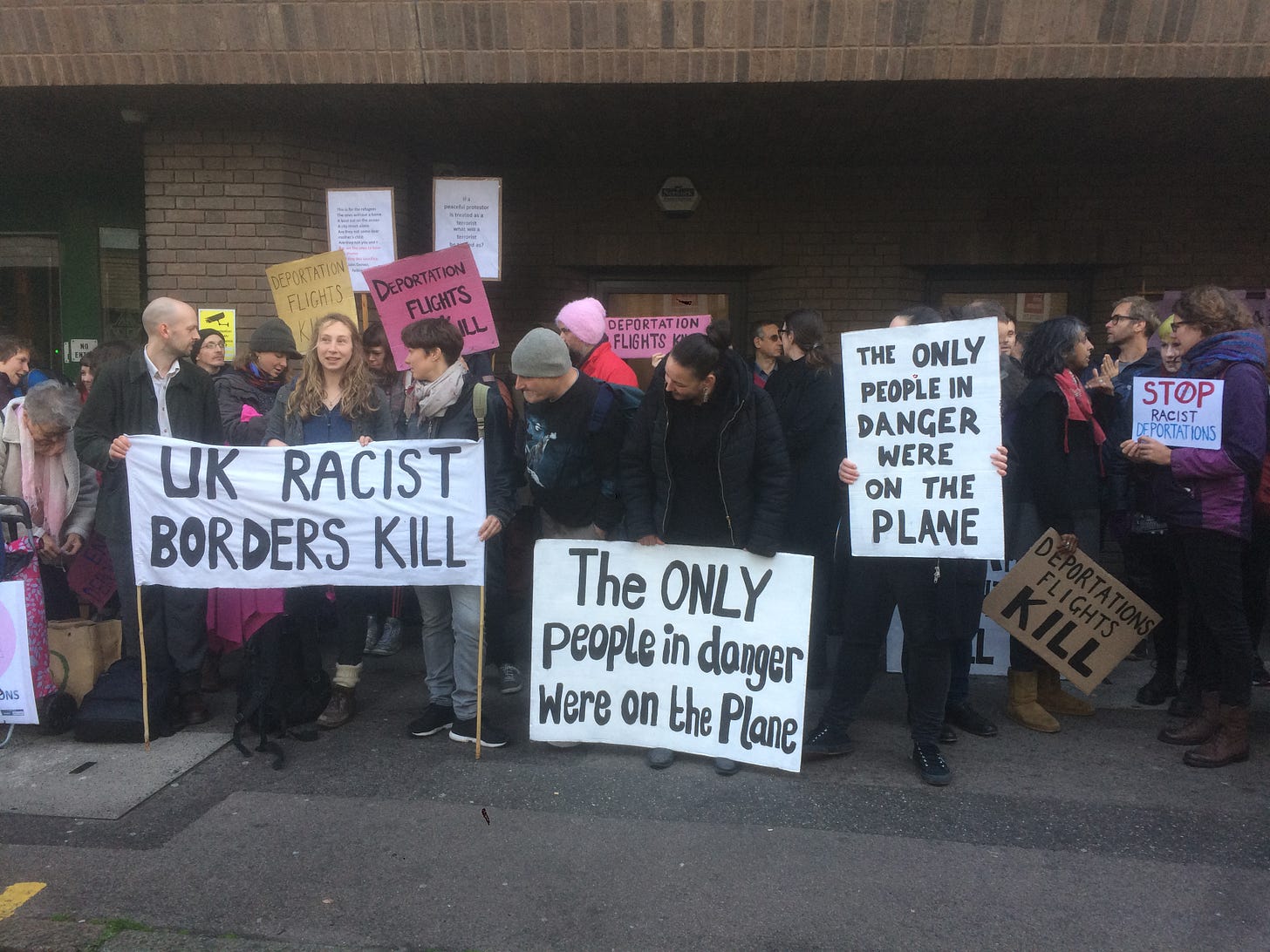#5
On the night of March 28, 2017, fifteen activists cut a hole through the perimeter fence at London’s Stansted Airport and locked themselves around a plane that had been chartered by the UK government to deport migrants and asylum-seekers to Ghana and Nigeria. After ten hours immobile on the tarmac, they achieved their goal: the flight was cancelled. They were arrested and charged with aggravated trespass, but months later, the Crown Prosecution Service upgraded those charges to endangering safety at an aerodrome, which falls under the Aviation and Maritime Security Act 1990, an obscure law intended to fight terrorism. It carries a potential life sentence.
In the fall of 2018, the activists were at the center of a ten-week jury trial in Chelmsford Crown Court, about thirty miles northeast of London. That December, the jury found all fifteen activists guilty; in February 2019, they were given noncustodial sentences, avoiding incarceration. But the Stansted 15, as the activists are collectively known, had still been convicted of terrorism-related offenses, subject to restrictions on travel and job opportunities. The case also set a dangerous precedent for prosecuting civil disobedience moving forward.

The Stansted 15 appealed the decision immediately, but it was not until about ten days ago—nearly four years after their initial protest and over two years since they were found guilty—that the UK’s Court of Appeal overturned their terrorism-related convictions, saying that the charge should never have been brought against nonviolent activists in the first place. It was what the activists, as well as human rights groups like Amnesty International, had been saying all along.
I was living in London in late 2018 and covered the case for The Intercept, taking the train to Chelmsford to witness parts of the trial and the sentencing hearing. As the trial neared its end, I wrote a feature that explored both the government’s practice of chartering private planes for deportations and the debates around the criminalization of nonviolent protest that the case brought up. I then wrote follow-up stories when the verdict was announced, after the sentencing hearing, and when the judgment on the appeal was given just a week and a half ago, speaking with one of the activists less than an hour after she’d found out the convictions had been overturned.
You can find all of my coverage of the Stansted 15 case below:
These Activists Blocked Migrant Deportations. Now They Face Life Imprisonment in the U.K. November 17, 2018.
Activists Found Guilty of Terrorism-Related Offense for Stopping U.K. Migrant Deportations. December 11, 2018.
Activists Avoid Jail in U.K. After Blocking Plane from Deporting Migrants. February 7, 2019.
Terrorism-Related Convictions Overturned for U.K. Activists Who Blocked Migrant Deportations. January 29, 2021.
